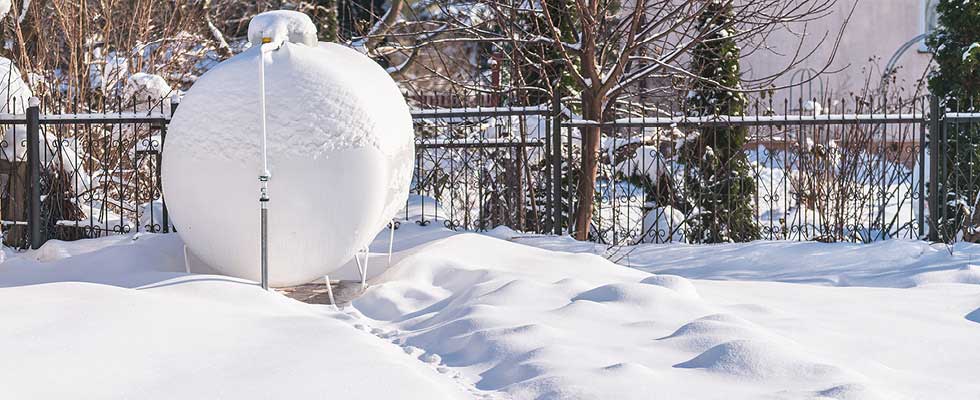
Maintaining propane safety know-how is crucial for customers who rely on propane heat and appliances. This is especially true during the cold months.
Here are a few safety tips for your propane users to keep in mind throughout the winter season.
1. Schedule Regular Inspections
Before the winter season begins, have your propane system and appliances inspected by a qualified technician. This will ensure everything is in proper working order.
2. Install Carbon Monoxide Detectors
Like natural gas appliances, propane appliances can produce carbon monoxide (CO), which is colorless and odorless, making it difficult to detect. Install CO detectors in your home to monitor for any leaks and ensure they are in good working condition. Make sure you follow manufacturer instructions for proper installation.
3. Ensure Proper Ventilation
Ensure that all propane appliances are properly vented to the outside. Adequate ventilation is essential to prevent a buildup of carbon monoxide inside your home.
4. Keep Propane Tanks Clear
Keep the area around your propane tank clear of snow, ice and other debris. This will allow for safe and easy access for your delivery driver and help prevent damage to the tank and associated equipment. Ensure that your driveway or access path for propane deliveries is clear of snow and ice as well, so delivery trucks and drivers can safely get to your tank.
5. Familiarize Yourself With the Emergency Shutoff
Know the location of your propane tank’s emergency shut-off valve and how to turn it off in case of an emergency. If you suspect a leak, turn off the gas supply and immediately contact your propane supplier, as well as 911.
6. Monitor Your Tank Gauge
Keep an eye on the propane tank gauge and order refills in advance to prevent running out of fuel in the middle of winter. It’s a good practice to refill the tank when it’s between 20%-30% capacity.
7. Teach Family Members
Ensure all family members understand propane safety protocols, including how to recognize the smell of propane (which is similar to rotten eggs) and what to do in case of a leak.
8. Be Cautious With Portable Heaters
Do not use portable propane heaters designed for outdoor use indoors! If you’re using portable propane heaters approved for indoor use, you must follow the manufacturer’s instructions carefully and ensure they are truly designed for indoor use.
While portable heaters can be convenient sources of heat, they can also pose several dangers in your customers’ homes. Some of the risks and precautions that should be taken include:
- Oxygen depletion: Propane heaters consume oxygen as they burn. In a poorly ventilated room, the combustion process can deplete the oxygen supply, leading to asphyxiation or other health problems.
- Fire hazard: Portable propane heaters have open flames or hot surfaces that can ignite nearby flammable materials like curtains, furniture or paper. Accidental fires can occur if the heater is knocked over or if flammable materials come too close.
- Burns and scalds: The surfaces of portable propane heaters can become extremely hot, and accidental contact can result in burns, especially if there are children or pets in the vicinity.
- Gas leaks: If gas connections are not properly maintained or if the propane heater is damaged, it can lead to gas leaks. Propane is heavier than air, so any leaked gas can pool in low-lying areas, increasing the risk of an explosion or fire.
- Improper use: Some users may misuse portable propane heaters, leading to safety hazards. This includes using them in enclosed spaces without proper ventilation, connecting the heater to an incompatible propane source, or using the heater for purposes it wasn’t designed for.
In addition to these comprehensive safety tips, keeping emergency numbers — including the contact information for their propane supplier and the local fire department — readily available is extremely important. This can significantly expedite response times in the event of an emergency and help safeguard customers’ homes and families. Not only can customers keep their homes warm and comfortable throughout the winter, but they can also minimize the risks associated with propane usage.
Prioritizing regular maintenance and staying vigilant for any signs of trouble will ensure a safe and secure winter heating season for your customers.


